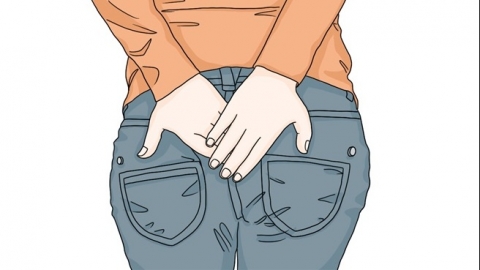What to do about hemorrhoid bleeding
Generally, hemorrhoid bleeding may be caused by prolonged sitting or standing, consumption of spicy foods, internal hemorrhoids, anal fissures, or rectal polyps. Treatment options include general therapy and medication, as directed by a physician. Detailed explanations are as follows:

1. Prolonged Sitting or Standing
Maintaining the same posture for extended periods, such as prolonged sitting or standing, can impair blood circulation in the pelvic cavity and hinder venous blood return, thereby increasing the risk of hemorrhoids and bleeding. Recommendations include: getting up and moving regularly to avoid prolonged static posture; engaging in appropriate physical exercise, such as anal lift exercises, to strengthen pelvic muscle strength and promote blood return.
2. Spicy Diet
Spicy foods can irritate the intestinal mucosa, causing local congestion and edema, which increases the likelihood of hemorrhoid bleeding. It is advised to: adjust the diet by reducing spicy food intake; increase dietary fiber consumption, such as eating more vegetables and fruits, to maintain smooth bowel movements and reduce irritation to hemorrhoids during defecation.
3. Internal Hemorrhoids
Internal hemorrhoids are a type of hemorrhoid caused by varicose veins in the lower rectum. The mucosal surface of internal hemorrhoids is thin and prone to rupture and bleeding during bowel movements. Symptoms often include a feeling of rectal fullness and incomplete evacuation. Under a doctor's guidance, medications such as Sophora japonica pills, compound alginate ester suppositories, and diosmin tablets may be used for treatment.
4. Anal Fissure
Anal fissures refer to longitudinal full-thickness tears or ischemic ulcers in the anal canal skin. The fissure site contains many blood vessels and is prone to bleeding during defecation. Symptoms may include periodic anal pain and constipation. Treatments should follow medical advice and may include medications such as glyceryl trinitrate ointment, potassium permanganate solution, and lidocaine gel.
5. Rectal Polyps
Rectal polyps may be caused by inflammatory stimulation, genetic factors, and others. The mucosal surface of polyps is fragile and susceptible to injury and bleeding during defecation. Symptoms may also include abdominal discomfort and changes in bowel habits. Under a doctor's guidance, medications such as sulfasalazine enteric-coated tablets, 5-aminosalicylic acid enteric-coated tablets, and prednisone acetate tablets may be used for treatment.
To prevent this condition, it is recommended to avoid maintaining the same posture for long periods in daily life and to engage in regular physical exercise. Additionally, regular physical examinations are advised to detect and treat intestinal diseases promptly, preventing deterioration that could lead to hemorrhoid bleeding.






